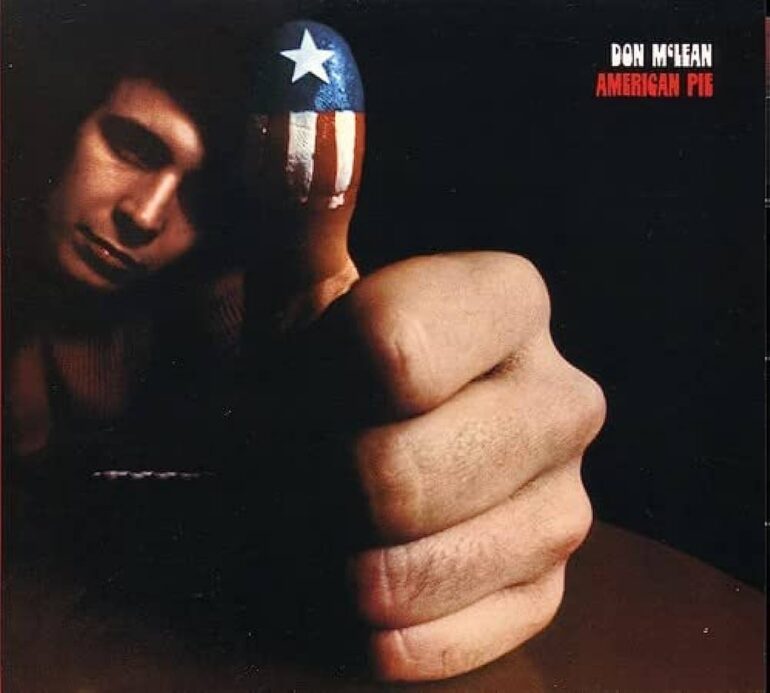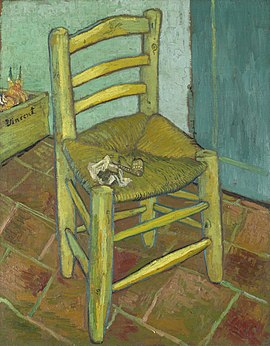Listeners:
Top listeners:
-
play_arrow
Fun Size Trending Topics September 23, 2021. His Name? St. Dangerous Of Course CD929


On Two For Tuesday, we celebrate two songs that are linked in one way or another. Maybe an artist referenced another artist’s song. Maybe one song features an interpolation of another song. Perhaps an artist references one of their earlier songs through a repeated line or riff. If they’re linked, you may just read about them on Two For Tuesday.
Editor’s note: Okay so I kind of dropped the ball last week because I had THE PERFECT Two For Tuesday for the 4th of July. But with our short day Monday, I didn’t give myself enough time to write it. So here’s the Two For Tuesday I meant to post back then. Just squint your eyes and it will ALMOST look like I posted it on the correct week.
Before even the original “We Didn’t Start the Fire,” there was another song that did what it could to capture more than a decade of pop culture. Sure, it took Don McLean nearly nine minutes, but it was worth it.
 “American Pie” could appear in a future “Two For Tuesday”- several times, actually. The song, whose jumping-off point is “the day the music died” includes references to the Buddy Holly/Crickets song “That’ll Be the Day” (“singing this’ll be the day that I die“) as well as The Byrds song “Eight Miles High” and many allusions to public figures of the late ’50s/’60s. McLean relates everything to both his own life and society as a whole, meaning it plays on the emotion of his own nostalgia while calling upon the listener to feel nostalgic themselves.
“American Pie” could appear in a future “Two For Tuesday”- several times, actually. The song, whose jumping-off point is “the day the music died” includes references to the Buddy Holly/Crickets song “That’ll Be the Day” (“singing this’ll be the day that I die“) as well as The Byrds song “Eight Miles High” and many allusions to public figures of the late ’50s/’60s. McLean relates everything to both his own life and society as a whole, meaning it plays on the emotion of his own nostalgia while calling upon the listener to feel nostalgic themselves.
The length of the song only adds to the idea that “the day the music died” was a flashpoint in American history. But was it really? I’m sure the music world would be a much better place had Buddy Holly continued to release new music, had Ritchie Valens been able to refine his skills, had the Big Bopper lived to bop another day…but was it really a flashpoint for AMERICA? Moreso than anything, it was an important point in McLean’s life. It represented the end of his innocence as he realized that the rock stars he idolized were not immortal. McLean’s father would die around two years later, furthering the idea that times were getting darker and that McLean could never return to the way things were before “the day the music died.” McLean is able to pour so much of his own nostalgia and emotion into recounting the time between the loss of his innocence and the time when the song was written that we can feel that pain also. I wasn’t alive for the release of “American Pie,” but I feel the pain McLean experienced after the loss of some of his favorite musicians, as do many listeners.
McLean’s career is filled with songs of emotional nostalgia, particularly the songs on American Pie. McLean was watching his marriage crumble as he worked on the album and may have been dreaming of simpler times while also finding himself more drawn to those who had gone through intense pain. His second-best-known song is one that can also be found on the American Pie album. “Vincent” (sometimes incorrectly referred to as “Starry Starry Night”) pulls you into the world of Vincent Van Gogh and the tragedy of his life: his pains and misunderstanding by society despite his incredible talent. Even if you aren’t a fan of Van Gogh, you feel sympathetic toward him and your heart aches for him. But “Vincent” isn’t the only track on the album about Van Gogh.
 “Empty Chairs” was inspired by Van Gogh’s famous painting of a chair. Paintings of empty chairs are said to represent loss, but Van Gogh’s chair has also been interpreted as a kind of self-portrait, portraying him to be a simple and modest man who takes pleasure in the simplicity of smoking a pipe. McLean uses Van Gogh’s chair to symbolize loss in “Empty Chairs,” a song about a lover who has left despite the narrator’s assumption “I never thought you would.” In fact, the record company wished to retitle it “I Never Thought You Would,” but McLean argued “Empty Chairs” represented what the song was about.
“Empty Chairs” was inspired by Van Gogh’s famous painting of a chair. Paintings of empty chairs are said to represent loss, but Van Gogh’s chair has also been interpreted as a kind of self-portrait, portraying him to be a simple and modest man who takes pleasure in the simplicity of smoking a pipe. McLean uses Van Gogh’s chair to symbolize loss in “Empty Chairs,” a song about a lover who has left despite the narrator’s assumption “I never thought you would.” In fact, the record company wished to retitle it “I Never Thought You Would,” but McLean argued “Empty Chairs” represented what the song was about.
There are many conflicting stories about part two of this Two For Tuesday, and some say that the second song isn’t linked to “Empty Chairs” at all. But given everything we know about McLean’s ability to convey emotions through his songs, I find it difficult to believe “Killing Me Softly With His Song” was not written about Lori Lieberman’s experience at a Don McLean show.
Lori Lieberman signed a contract in 1971 when she was 19 years old. The contract was with Norman Gimbel and Charles Fox and stipulated that they would manage her career and write her songs for 20% of her income. At 20, she visited The Troubadour in Los Angeles with her friend Michele Willens in order to see Don McLean perform. Lieberman claims that upon hearing “Empty Chairs,” she was so greatly affected that she began to scribble down lyrics for what would become “Killing Me Softly With His Song.” Willens has confirmed that Lieberman was scribbling notes on a napkin during “Empty Chairs.”
For years, Lieberman told the story that the song’s lyrics were inspired by the profound effect McLean’s songwriting and performance had on her. She said she called Norman Gimbel as soon as she could to tell him about her experience and ideas. Lieberman told this story at all of her live shows and on TV. Gimbel and Fox even helped her to write out the introduction so that it would be consistent. Gimbel supported her explanation of the writing process as late as 1973 in a New York Daily News article.
But the world of Gimbel/Fox/Lieberman wasn’t simple. Lieberman and Gimbel began an affair behind the back of both Fox and Gimbel’s wife, despite the fact that Gimbel was 24 years older than Lieberman. Gimbel divorced his wife in 1973, but the relationship with Lieberman did not flourish. By 1976, Lieberman believed Gimbel to have become too controlling and emotionally abusive and ended things with him, later requesting that Gimbel and Fox let her out of her contract. Despite the success of Roberta Flack’s cover of “Killing Me Softly With His Song,” Lieberman had not had widespread commercial success during the nearly six-year partnership. Some managers may have let an unsuccessful artist out scott-free, but Gimbel and Fox’s lawyers were instructed to demand $27k from Lieberman for expenses, plus an additional $250k from her future income. Since Lieberman never received official writing credit for the song, the financial requests had the potential to ruin her future career. Lieberman released one final album in the ’70s without Gimbel and Fox before ending her personal recording career for over fifteen years. She sang “The Great American Melting Pot” for School House Rock and one song for the TV show Fame, but was otherwise silent.
In the mid-nineties, Lieberman’s soon-to-be husband Joseph Cali suggested that she get back into music, convincing her to record an album mostly consisting of her original songs A Thousand Dreams. A Thousand Dreams and Lieberman’s next albums found an audience in the audiophile community and suddenly she was in the spotlight more than ever before. As Lieberman’s career began to take off, in 1996 Fugees covered “Killing Me Softly With His Song” to great success. As a result of its success, even the 1973 Roberta Flack version popped back up in the charts.
Lieberman began to repair her relationship with Charles Fox, Fox even attending one of her shows. In 1997 however, Lieberman was interviewed by The New York Times and told them that Gimbel and Fox has been controlling in the earlier part of her career. She stated: “I felt like I was pushed on stage and I was singing other people’s material, although that material was based on my private diaries. I felt victimized for most of my early career.” After the interview, Fox ended communications with Lieberman. Around this time, Gimbel and Fox suddenly changed their story about the origin of the song and began to deny that Lieberman was involved in the writing process.
Editor’s note: And I’m sure it had nothing to do with Lieberman’s sudden success, the resurgence of the song or the fact that Fox and Gimbel were both suddenly fired up about the New York Times interview.
Gimbel and Fox began to refer to the McLean origin story as an “urban legend.” Fox stated that Gimbel wrote the words first and then he added music and when they played it for Lieberman, she said it reminded her of the McLean concert.
In 2008, Gimbel’s lawyers demanded the removal of a blurb on Don McLean’s website that described “Empty Chairs” as the inspiration for “Killing Me Softly With His Song.” McLean’s lawyers replied simply with a copy of the 1973 New York Daily News article in which Gimbel corroborated Lieberman’s story.
Lieberman released a song in 2010 called “Cup of Girl.” The song speaks of everything Lieberman had said about her partnership with Gimbel to that point with some new accusations thrown in. Gimbel was reportedly outraged and sent Lieberman angry emails that she did not respond to.
It wouldn’t be crazy to assume Fox and Gimbel had encouraged the McLean story while trying to make her career take off, but then why not reveal the truth in 1976 when she terminated the contract? Why wait until Lieberman relaunched her career and the song was back in the charts by another artist? Fox and Gimbel would have been receiving royalties from the song’s resurgence, whereas Lieberman would not. Surely the only reasons for the change in their story could be revenge against Lieberman or a campaign to discredit her in case she attempted to sue for writing credit on the song. Lieberman has stated, however, that she doesn’t care about writing credit, she simply wants the true story of the song to be known. During the last verse of “Cup of Girl,” Lieberman sums up this stance: “Take your money, take your credit//Take your secrets along with it//You could take it all but not her memory.”
Feel free to suggest a future Two For Tuesday by emailing JustEmma@CD929FM.COM.
–Just Emma
Written by: Emma Sedam

